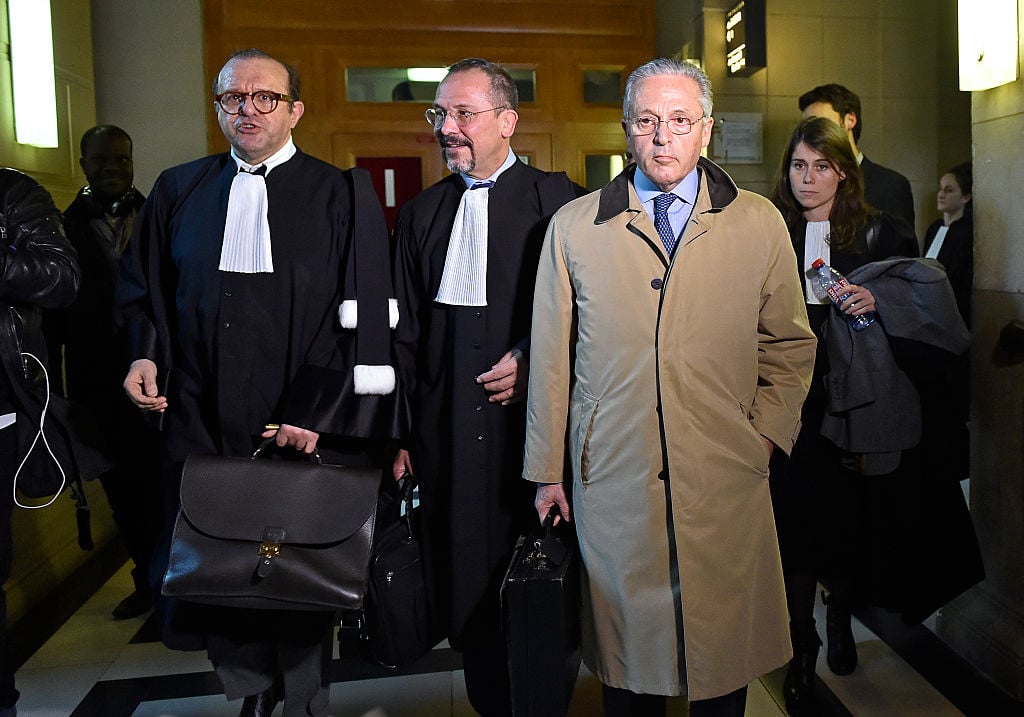
At least one offshore trust held by the Wildenstein family has served as a piggy bank for the art dealing clan, distributing over $300 million since the death of patriarch Daniel Wildenstein in 2001, testimony by the Bahamas-based Royal Bank of Canada Trust Company revealed.
Prosecutors say the Wildenstein clan and its advisors used offshore trusts to protect assets worth several billion euro from estate taxes, but have struggled to untangle the web of obscure financial structures held by the family.
In the trial for tax evasion that began in Paris last Monday, however, testimony by the Royal Bank of Canada Trust Company (RBCTC Bahamas) has shed a rare light on the dealings of the Wildenstein family.
As trustee of the Delta Trust—to which Daniel Wildenstein conferred 2,000 paintings worth nearly $1 billion before his death in 2001—RBCTC Bahamas has largely renounced its obligation to secrecy since discovering that the Wildenstein family had moved $250 million of paintings owned by the trust out of the US without the trustee’s approval.
RBCTC Bahamas says they reported the paintings to American tax authorities when they discovered the move—which evaded $136 million in estate taxes—in 2014, more than a decade after the fact.
In his testimony to the Paris Court of Appeals, RBCTC’s representative Brian Taylor said that the trust had been selling off paintings at the Wildensteins’ behest in order to generate revenue for the family.
When questioned by the judge for why a trust charged with “maintaining” the family’s art collection would only sell paintings and not acquire, Taylor was clear: “Our role was not to increase the value of the collection. Our role was to generate distributions to maintain the lifestyles of the beneficiaries.”
Guy Wildenstein’s nephew Alec Jr., received around $4 million from the sale of several works by Bonnard in 2013—which he says he has used to pay his legal fees. “At this point, I don’t have much left.”
In addition to the distributions he has received as a beneficiary, Guy Wildenstein has enjoyed a 25 percent commission on each painting sold directly by his gallery, and 12.5 percent commission on paintings sold at auction. The trustee never challenged the sale of a painting by the family.
According the court’s indictment, Delta Trust is the only one of the Wildensteins’ offshore holdings to own paintings directly, versus simply maintaining shares in underlying companies.
No distributions have been made from the Delta Trust since 2013, RBCTC’s Mr. Taylor said, leaving a repository of around 1,900 paintings valued at $875 million in this trust alone.
Guy Wildenstein told the court he knew little about his father’s use of trusts, but reacted to their existence “as an American” and considered the situation to be normal.
Related: Wildenstein Trial Proceedings Reveal Family at War
Mr. Wildenstein and his defense have maintained that he was simply following the advice of the family’s lawyers and financial advisors when he did not declare his assets in trust to French tax authorities.
“The offices of the family’s advisors have been searched by authorities, and in no instance is Mr. Wildenstein known to have been advised to proceed differently,” said the attorney for Guy Wildenstein, Hervé Temime.
Investigators did find internal communications on the risk of not declaring the trusts in the office of one of the alleged accomplices, the notary Robert Pahnard, but no evidence has shown thus far that the concerns were shared with Mr. Wildenstein.
When questioned about the role of one employee of the Wildenstein family who was copied in written exchanges regarding payments considered suspicious by the court, Mr. Wildenstein said, “She’s an accountant.”
“Accountants can do many things,” said the judge. “What exactly did you expect from this accountant?”
“To account for things,” Wildenstein answered.
With eight suspects, four translators, and nearly two dozen lawyers filling the court, when the individuals taking the stand were reluctant to speak there was no shortage of voices to take their place.
“When I speak,” judge Oliver Geron said at a chaotic moment in the proceedings Wednesday morning, “it were better that you all shut up.”